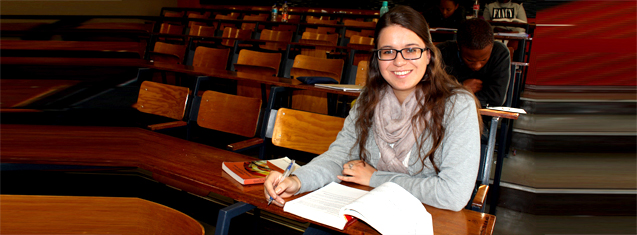Latest News Archive
Please select Category, Year, and then Month to display items
02 January 2025
|
Story Gerda-Marie van Rooyen
|
Photo Supplied
 Leading the research in South Africa is Prof Linus Franke from the Department of Soil, Crop and Climate Sciences.
Leading the research in South Africa is Prof Linus Franke from the Department of Soil, Crop and Climate Sciences.
Scientists are actively pursuing the successful breeding of diploid hybrid potatoes from inbred lines. This is expected to revolutionise potato breeding as it holds the key to rapid genetic progress. It will introduce new varieties for commercialisation through seed. Currently, existing potato variants have a gene that renders self-pollinated seeds infertile.
Prof Linus Franke, an academic in the Department of Soil, Crop and Climate Sciences at the UFS, is leading the research in South Africa. “This technology allows the production of genetically uniform potato seed that is easy to transport and largely disease-free.” He says this differs from conventional breeding whereby only vegetative propagation is possible due to tetraploid varieties in potatoes. It also risks carrying pests and diseases from one generation to the next – leading to the accumulation of pests and diseases with each round of multiplication.
Seed innovation
Prof Franke explains that Solynta BV, a seed company based in the Netherlands that produces potato varieties that can be grown from seed, has included South Africa in their research efforts because it is one of Africa’s largest producers and exporters. Through his academic relationship with Wageningen University and Research, a Dutch institution renowned for its agricultural endeavours and food production, the UFS became involved in researching hybrid potatoes grown from seed.
Diploid seeds containing two sets of chromosomes allow easier gene manipulation to increase predictability and speedier genetic progress. The breeding approach enables the incorporation of tolerance to pests, diseases, abiotic stresses (cold, heat, drought) and other desired genetic traits.
Although Prof Franke is optimistic about this research, he is not blind to disadvantages. “Potato seeds are tiny and have little energy reserves, making it harder to grow potatoes from seed than from tubers.” He says potatoes from seed will take longer to cultivate than tubers, as farmers need to grow plantlets from seeds first, adding six weeks to the growing period. “It is possible that commercial farmers can grow potatoes directly from seed. Alternatively, perhaps more likely, specialised growers will produce tubers of potatoes from seed; these tubers are then sold as seed tubers to other potato farmers, who then continue their normal practices of producing potatoes for the market from tubers.”
Financial benefits
Prof Franke says farmers have reason to get excited. “Seed potatoes will reduce input costs, as varieties with enhanced tolerance to pests and diseases require less pesticides. Planting one hectare of potatoes requires three to four tonnes of potato tubers, but only one 25 g packet of potato seeds.” Since potatoes are a more valuable commodity than maize, this technology might also increase farmers’ income potential.
Because you can do the undoable
2014-05-30

Gabriela Schroder
Since visiting the University of Vermont in 2011 as an F1 student and attending the Stanford Sophomore College the year after, Gabriela Schroder has never stopped dreaming and working towards her objectives.
During the autumn graduation earlier in 2014, Gabriela received the Dean’s Medal. This award goes to the final-year student who achieves the best results in respect of a first Bachelor’s degree in the Faculty of Natural and Agricultural Sciences. Her triumph did not end there. In addition, she also received the Senate’s Medal and Prize which is awarded to the best Bachelor’s degree student at the university. Across all the faculties of our university.
“Although these medals came to me as a surprise, it really was a reward to my hard work and toil throughout my undergraduate years,” she said. Schroder was also honoured and introduced by Prof Jonathan Jansen on stage at this year’s Kovsie Open Day, along with other top achieving students. She believes that anybody can reach their goals if they are willing to make sacrifices and through focus, hard work and determination.
One of her favourite quotes that motives her is of Albert Einstein, “You really understand something if you can explain it to your grandmother.” In the process of learning, one must break down what they are working towards. She advises to make the knowledge your own – this develops a better insight into the concept. In the end, that which is regarded as complex is originally built from simple principles.
Schroder is currently studying towards her BSc Honours in Biochemistry at Kovsies. She has her sights set on a master’s degree in the near future.
“To my fellow Kovsies and beyond: seize your opportunities. Don’t be afraid to think the unthinkable – because you can do the undoable,” she added.